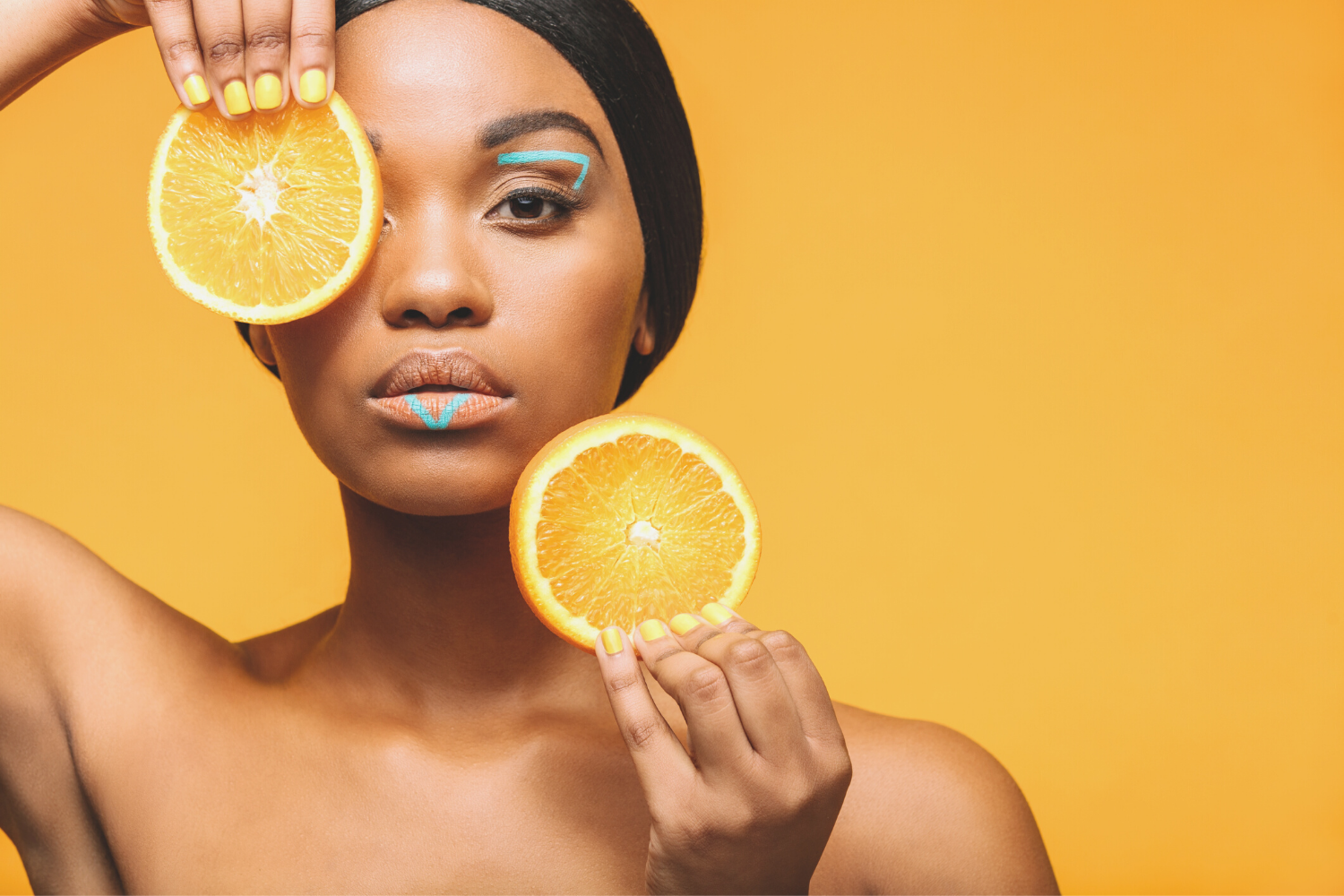You’ve heard about the skin benefits that vitamin C provides but did you know this wonder ingredient can also help your hair health? Vitamin C is a powerful antioxidant that can help protect and strengthen your strands. It is a water-soluble vitamin that is naturally found in some foods and added to supplements and beauty products. Vitamin C has surprising benefits for your hair, from protecting from free radicals to anti-breakage, these are the ways vitamin C can reveal healthier, shinier, stronger locks.
1. Protects from free radicals. Free radicals are unstable atoms that can often damage cells and speed up the aging process. In this case, free radical damage can block hair growth and cause your hair to age. This essentially results in dry, brittle feeling hair. That’s when vitamin C comes in. Vitamin C has powerful antioxidant properties that work to protect your hair against oxidative stress that may be caused by free radicals. The vitamin also works to strengthen your strands through creating collagen, a protein that largely makes up hair structure.
2. Clarifies the scalp. Scalp health is very important if you want to maintain healthy, voluminous hair. Vitamin C can be a good clarifying agent and mild cleanser when it comes to removing mineral buildup on the scalp and strands. Removing mineral buildup means that there is a clean slate for your hair to absorb moisture from nourishing products leading to shinier, softer strands. Clogged hair follicles can also lead to a dry, flaky scalp or dandruff. Vitamin C can work to combat bacteria on the scalp and remove the hair follicle debris that builds. In doing so, this vitamin also soothes and calms an itchy or irritated scalp.
3. Humectant. A water-soluble vitamin means that is attracts and binds water to itself. This means that vitamin C works as a humectant when used in hair products. But what does humectant actually mean? It means that vitamin C can deeply and effectively moisturizer your scalp and hair through products like conditioners, leave-ins or hair masks. This feature of intense hydration is necessary in transforming dry, dull, damaged strands into voluminous, shiny and healthy hair.
4. Protects color. Vitamin C can help retain your hairs natural color through protecting premature aging and greys. It can also protect your fresh hair color whether you used dye or bleach. This is because vitamin C, ascorbic acid, is water soluble so it does not buildup on the surface of your hair. It can effectively cleanse and moisturize strands without causing fading damage to color. Vitamin C is also a scavenger to free radicals, meaning it can help maintain hair health when color is applied to it.
How can you use vitamin C on your hair?
Vitamin C can be ingested daily through vitamins or foods such as citrus, tomatoes, green peppers and more. However, the easiest way to experience the hair benefits of vitamin C is to apply it topically through an effective hair care product so that it can deeply absorb into your hair and really give you that hydrating and strengthening effect. Fyab Health’s Hair Vitality Shampoo is formulated with vitamin C to clarify and cleanse your scalp and hair while also deeply hydrating. The Fyab Health Hair Vitality Topical Plus Serum also works with vitamin C to restore dry, brittle and damaged hair with its intense strengthening abilities.
Sources:
Trüeb R. M. (2009). Oxidative stress in ageing of hair. International journal of trichology, 1(1), 6–14. https://doi.org/10.4103/0974-7753.51923 —READ MORE
Akram, N. A., Shafiq, F., & Ashraf, M. (2017). Ascorbic Acid-A Potential Oxidant Scavenger and Its Role in Plant Development and Abiotic Stress Tolerance. Frontiers in plant science, 8, 613. https://doi.org/10.3389/fpls.2017.00613 —READ MORE
Almohanna, H. M., Ahmed, A. A., Tsatalis, J. P., & Tosti, A. (2019). The Role of Vitamins and Minerals in Hair Loss: A Review. Dermatology and therapy, 9(1), 51–70. https://doi.org/10.1007/s13555-018-0278-6 —READ MORE
Hata, R.‐I. and Senoo, H. (1989), L‐ascorbic acid 2‐phosphate stimulates collagen accumulation, cell proliferation, and formation of a three‐dimensional tissuelike substance by skin fibroblasts. J. Cell. Physiol., 138: 8-16. https://doi.org/10.1002/jcp.1041380103 —READ MORE


No responses yet